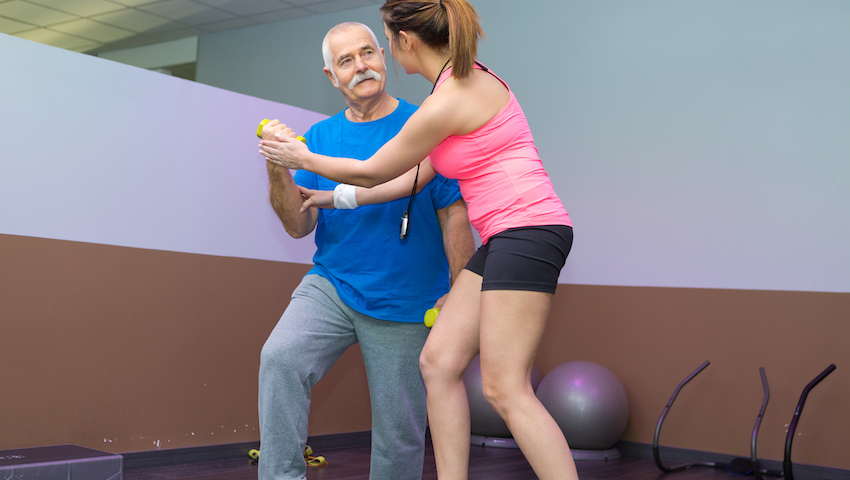
What Are the Most Effective Treatment Options for Gout?
December 10, 2022
Do I Need a Physical Therapist for Sciatica Nerve Pain
December 19, 2022What Is Vestibular Rehab? (and How to Know When You Need It)

Vestibular rehab is a type of physical therapy to treat dizziness and balance problems that may be occurring due to a variety of conditions. During vestibular rehab, your therapist introduces a variety of exercises to help you manage symptoms and regain your sense of balance while also reintegrating your senses.
Conditions treated with vestibular rehab
Dizziness and problems with balance are symptomatic of a number of conditions, including:
- Benign paroxysmal positional vertigo (BPPV)
- Migraine headaches
- Labyrnthitis
- Meniere disease
- Stroke
- Traumatic brain injury
- Vertigo
Feeling dizzy is caused by a lack of spatial awareness. When your brain fails to accurately signal where your body is in relation to your surroundings, you may feel woozy or light-headed. You may even feel nauseated and off-balance.
Balance is a complex phenomenon involving your inner ear structures, your vision, and the movement of your tissues, joints and muscles. All of these work together, sending signals to your central nervous system how to move or maintain balance.
What’s involved with vestibular therapy?
When you’re first evaluated, a physical therapist, also known as a vestibular therapist, will review your medical history as well as any lab work and testing that may have been prescribed. They’ll observe how you walk (your gait) and will examine your strength and flexibility. They’ll also ask questions about how dizziness and balance issues are affecting your life and when the problems occur.
Your vestibular therapist will develop a rehab program design to meet your specific goals and needs. The main goals of vestibular rehab are to help:
- Improve your balance
- Reduce your fall risk
- Reduce symptoms of dizziness
- Stabilize your vision
- Increase body strength
Your exercise program often includes a regimen of eye movement control, body strength training, and balance retraining.
One example of vestibular rehab is gaze stabilization. This is an important aspect of vision control because people with balance issues tend to complain of problems in which their eyes “bounce” or move around when they’re trying to focus. One example of gaze stabilization involves training the eyes on an object and then slowly moving the head while still fixating on the object.

What to expect from vestibular rehab
Once you begin vestibular rehab and implement the exercises on a regular basis, you should experience a diminishing of dizziness and regaining of balance. Your progress will depend on your commitment to doing the exercises at home as well as at vestibular rehab appointments and may also depend on other factors, such as:
- Your general health (other medical conditions)
- Your activity level
- Pain management
- Medications
- Stress, anxiety, emotional concerns
There’s also what’s called “decompensation,” which refers to relapse that may occur in the brain due to external factors such as when you get sick with the flu or you experience financial hardship or other life stressors that may trigger symptoms for you.
You can always begin vestibular rehab therapy exercises again, however, to get back on track.
Looking for a vestibular rehab therapist or just have questions? Give us a call at (941) 441-9171 or fill out the form and we’ll get back to you.



